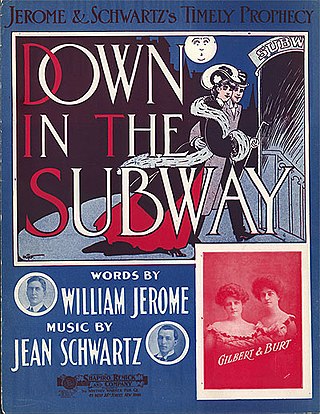
William Jerome Flannery, September 30, 1865 – June 25, 1932) was an American songwriter, born in Cornwall-on-Hudson, New York, of Irish immigrant parents, Mary Donnellan and Patrick Flannery. He collaborated with numerous well-known composers and performers of the era but is best remembered for his decade-long association with Jean Schwartz with whom he created many popular songs and musical shows in the 1900s and early 1910s.

Tin Pan Alley was a collection of music publishers and songwriters in New York City that dominated the popular music of the United States in the late 19th and early 20th centuries. Originally, it referred to a specific location on West 28th Street, between Fifth and Sixth Avenues in the Flower District of Manhattan, as commemorated by a plaque on 28th Street between Broadway and Sixth. Several buildings on Tin Pan Alley are protected as New York City designated landmarks, and the section of 28th Street from Fifth to Sixth Avenue is also officially co-named Tin Pan Alley.

M. Witmark & Sons was a leading publisher of sheet music for the United States "Tin Pan Alley" music industry.
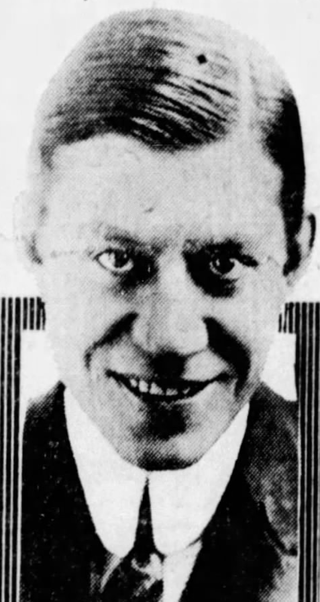
Egbert Anson Van Alstyne was an American songwriter and pianist. Van Alstyne was the composer of a number of popular and ragtime tunes of the early 20th century.

George Botsford was an American composer of ragtime and other forms of music.

"On the Banks of the Wabash, Far Away" is a song written and composed by the American songwriter Paul Dresser in 1897. It is among the best-selling songs of the 19th century, earning over $100,000 from sheet-music revenues. Written and composed by American songwriter Paul Dresser, it was published by the Tin Pan Alley firm of Howley, Haviland and Company in October 1897. The lyrics of the ballad reminisce about life near Dresser's childhood home by the Wabash River in Indiana, United States. The song remained popular for decades, and the Indiana General Assembly adopted it as the official state song on March 14, 1913. The song was the basis for a 1923 film of the same title. Its longtime popularity led to the emergence of several lyrical versions, including an 1898 anti-war song and a Swedish version that was a number-one hit.
Theodore Frank Snyder, was an American composer, lyricist, and music publisher. His hits include "The Sheik of Araby" (1921) and "Who's Sorry Now?" (1923). In 1970, he was inducted into the Songwriters Hall of Fame. As of 2007, his compositions have been used in more than twenty motion pictures.
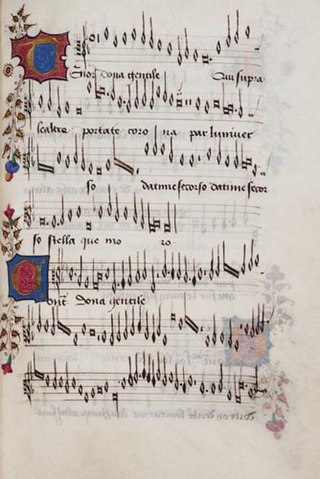
Music publishing is the business of creating, producing and distributing printed musical scores, parts, and books in various types of music notation, while ensuring that the composer, songwriter and other creators receive credit and royalties or other payment. This article outlines the early history of the industry.
Frederick Lawrence Wright was a British songwriter, music publisher, and the founder of the music journal Melody Maker. He used the pseudonyms Horatio Nicholls and Everett Lynton for his songwriting activities.

"After the Ball" is a popular song written in 1891 by Charles K. Harris. The song is a classic waltz in 3/4 time. In the song, an uncle tells his niece why he has never married. He saw his sweetheart kissing another man at a ball, and he refused to listen to her explanation. Many years later, after the woman had died, he discovered that the man was her brother.
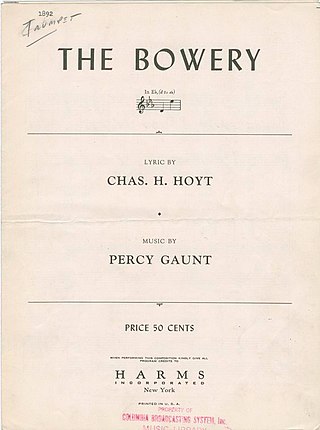
"The Bowery" is a song from the musical A Trip to Chinatown with music by Percy Gaunt and lyrics by Charles H. Hoyt. The musical toured the country for several years and then opened on Broadway in 1891.

"Livery Stable Blues" is a jazz composition copyrighted by Ray Lopez and Alcide Nunez in 1917. It was recorded by the Original Dixieland Jass Band on February 26, 1917, and, with the A side "Dixieland Jass Band One-Step" or "Dixie Jass Band One-Step", became widely acknowledged as the first jazz recording commercially released. It was recorded by the Victor Talking Machine Company in New York City at its studio at 46 West 38th Street on the 12th floor – the top floor.

"The Little Lost Child" is a popular song of 1894 by Edward B. Marks and Joseph W. Stern, with between one and two million copies in sheet music sales. Also known after its first three words as "A Passing Policeman", it is usually considered to have been the first work promoted as an illustrated song. The song's success has also been credited to its performance by Lottie Gilson and Della Fox.

Lottie Gilson was a popular Swiss-born American comedian and vaudeville singer of the 1880s and 1890s. She was billed as "The Little Magnet" in recognition of her ability to attract and engage audiences. Due to her popularity, she was much sought-after by Tin Pan Alley publishers to boost sheet music sales. Songs particularly associated with Gilson include "The Sunshine of Paradise Alley", "The Little Lost Child", "The Sidewalks of New York", and "My Mother Was a Lady". Her come back song "Just a Plain Little Irish Girl," is the only known surviving recording.
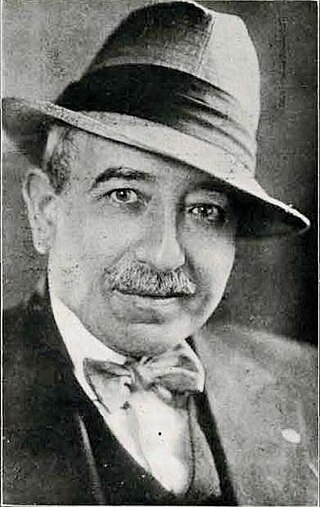
Leopold Feist was a pioneer in the popular music publishing business. In 1897, Feist founded and ran a music publishing firm bearing his name. In the 1920s, at the height of the golden age of popular music, his firm was among the seven largest publishers of popular music in the world. The company used the motto "You can't go wrong, with any FEIST Song."

The Finest Flag That Flies is a World War I song written by Joseph H. Hughes and composed by Harry Richardson. The song was self-published in 1914 by Joseph H. Hughes in Saginaw, MI.
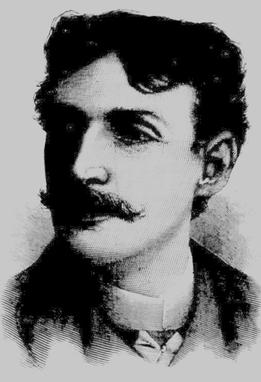
Monroe H. "Rosey" Rosenfeld was an American songwriter and journalist. In 1895, he was described by Ernest Jarrold in Munsey's Magazine as being in the "front rank" of successful popular song writers, with a reputation as a "graceful, prolific, and versatile composer".

André C. De Takacs was an illustrator. His artwork features on the covers of sheet music. He produced art for posters, postcards, and film company promotions. He also wrote music and poetry. The Smithsonian Libraries have some of his song sheet covers in their collection. The University of South Carolina's Tin Pan Alley Sheet Music Collection also includes his work.
Jack Mills, born Jacob Minsky, was a Russian-born American music publisher and songwriter. He immigrated to the United States at the age of five and grew up in New York City. His first job in the field of music was as a Tin Pan Alley "song plugger"; selling sheet music by playing songs on the piano for customers for a variety of music publishing firms in Manhattan. He ultimately became manager of the McCarthy & Fisher music publishing house prior to establishing his own company.


















